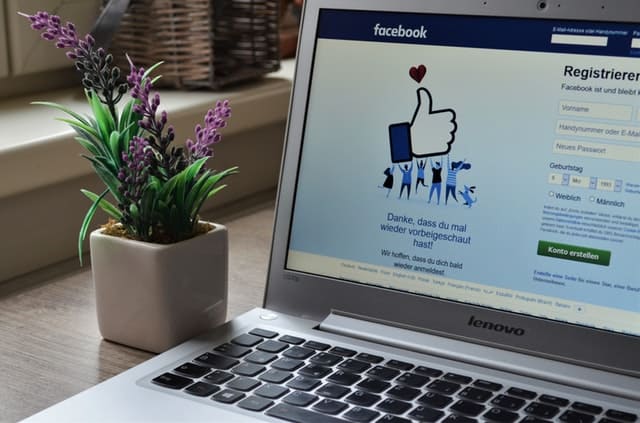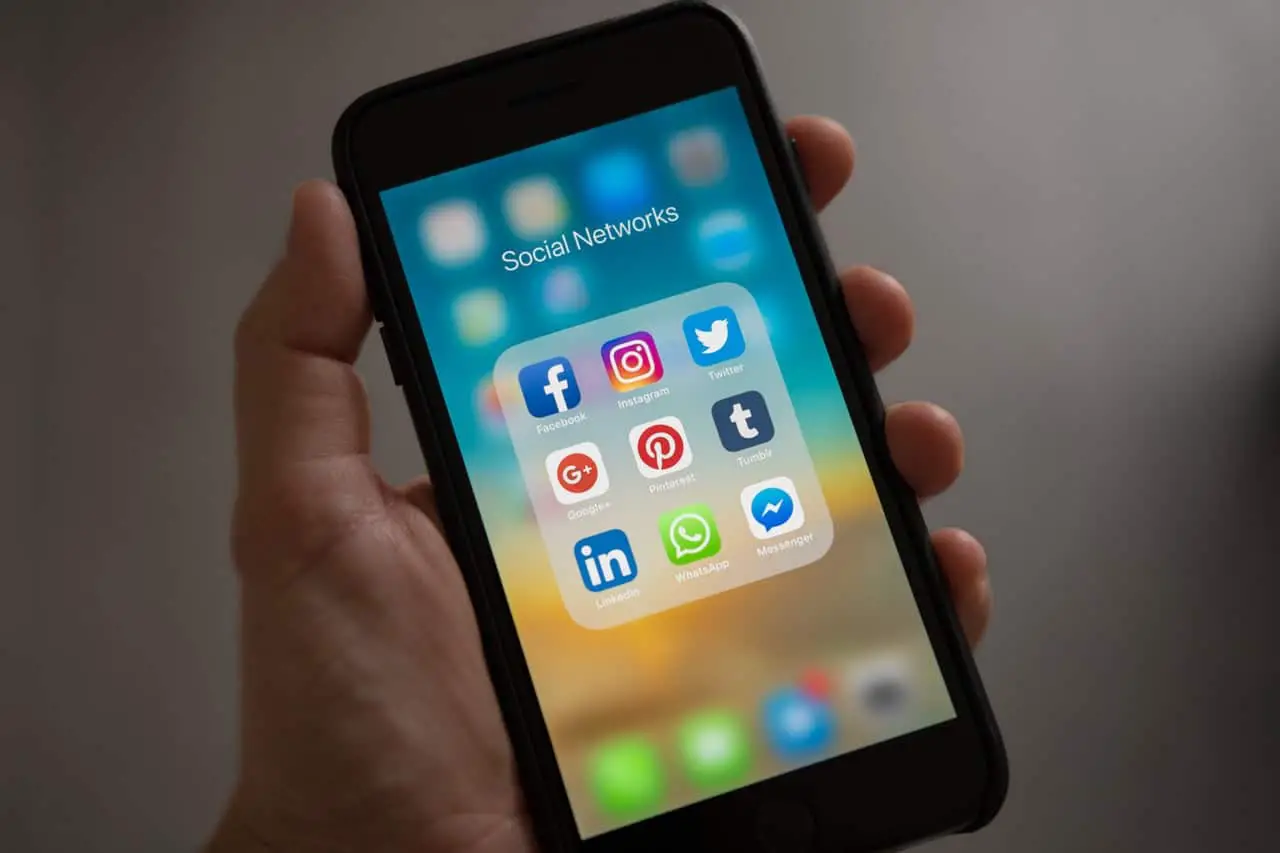For several years now, I have been working as a human resource manager in a multinational corporation. One common thing I noticed among the people in my department was that they would use social media during working hours. This phenomenon is unacceptable in some companies, but the firm I work in does not have a social media policy. Because of this, a select team of senior managers, and I conducted a study to determine the problems associated with the use of social media in the workplace.
Big companies, like the one I work in, should have a fair and transparent policy about social media usage. The overuse, and sometimes the misuse of social media could affect the overall operation of the company and could pose risks to the reputation of the employers and their business.
Although using social media is not entirely wrong, its improper use could harm the employers and the company. Thus, we gathered up several possible problems linked to your employees’ usage of social media during working hours. We hope that by the end of this article, you would realize why it is essential to regulate the use of social media, especially during working hours.
Reasons Why Employees Use Social Media

Before we dive into the issues associated with the use of social media in the workplace, managers and employers must first understand the root cause of using social media during working hours. Here are just some of the commonly reported reasons as to why using social media is rampant in the workplace:
1. Social media connects employees with people around the world anytime
Social media allows employees to communicate with one another and with their family and friends even while working. They can easily share their ideas and communicate among themselves whenever they are working on a project. They can also check up on their loved ones and stay updated with their lives even though they are inside the confines of the office.
and with their family and friends even while working. They can easily share their ideas and communicate among themselves whenever they are working on a project. They can also check up on their loved ones and stay updated with their lives even though they are inside the confines of the office.
2. Social media gives employees a mental break
Whenever tasks and responsibilities pile up, employees can breathe and take a minute or two off their hectic schedules to unwind and relax. They can scroll through their newsfeed and look at cute photos or watch exciting videos to keep their minds off work.
3. Social media allows employees to see life outside of work
Employees tend to use social media to see the world outside the walls of their office. Hectic schedules and piles of unfinished paperwork could suck the life out of you and make work feel exhausting, but using social media in the workplace can remind you that there is more to life than their work.
However, using social media in the workplace should be regulated by managers and employers to keep the whole operation of the company on its tracks. It could also prevent any unwanted issues that could eventually harm the reputation of the employers and their business.
and employers to keep the whole operation of the company on its tracks. It could also prevent any unwanted issues that could eventually harm the reputation of the employers and their business.
11 Adverse Effects of Social Media on Employees

Using social media in the workplace can affect both employees and employers. Here are some of the problems associated with its usage and how you could make a clear policy about it. First, let us tackle the potential adverse effects of social media on your employees and how it could affect your overall business.
1. Social media is highly addictive
Whenever people hear the term “addiction,” they would often think of the usual things like alcohol and drugs. But over the years, a new form of addiction has appeared – using social media.
has appeared – using social media.
People who use social media tend to become absorbed with it as they get to entertain themselves with photos, posts, and videos from all around the world. As a result, they end up wanting to use it more and eventually become addicted to it.
What these people fail to realize, however, is that overusing social media does not give them any sense of real fulfillment. Instead, it keeps them pre-occupied in a very unproductive manner.
Thus, employees who are highly addicted to social media often have the highest likelihood to perform in a somewhat slower and sloppier pace. They also tend to lose focus, thus, making more mistakes and affecting the overall productivity of the company.
To prevent this from happening, employees should be wary of the amount of time they spend on social media. You should remind them that an office is a place where they should work and not a place where they could slack off.
2. Social media could harm your privacy
When using social media, people would often get caught up in the moment and overshare every single thing about their personal lives that are sometimes best kept to themselves. However, this could harm your privacy and allow people around you to judge you, sometimes subconsciously, based on your opinions, choices, and personal life.
Your colleagues are no different from the people surrounding you. They could also form prejudices about you based on your activity on social media and make ridiculous rumors that could spread from one department to another. They would often overlook your performance at work or how you act towards your co-workers even if you are one of the top-performing employees in the company.
The best way to keep your employees’ privacy to themselves is to keep things professional at work.
3. Social media could make you crave for attention
When teenagers get too absorbed with social media, there is a considerable chance that they would become attention-seeking individuals when they grow up. They would regularly check the number of likes and shares on their photos and posts and spend most of their time trying to please others.
Similarly, adults could also end up acting that way. However, when their obsession for attention becomes overboard, they could become dependent on social media to feel a sense of satisfaction and fulfillment. As a result, it could affect some aspects of their lives, including their work ethic and performance.
4. Social media could affect your general well-being
Numerous studies and reports have proven how social media affects our minds. Using it for an excessive amount of time could make people less social and give them a temporary and sometimes, false sense of well-being.
have proven how social media affects our minds. Using it for an excessive amount of time could make people less social and give them a temporary and sometimes, false sense of well-being.
People who depend on social media to get validation and satisfaction may, most of the time, suffer from personal issues like low self-esteem. As a result, they would often experience episodes of anxiety or depression, thus, affecting their performance at work.
5. Social media could make you psychologically unhealthy.
Social media could make people dependent on the people around them to feel validation and gratification. The number of likes or shares they have on a post could start to become a measure of their self-worth or how important they are to other people.
They would only feel ecstatic when their posts go viral on social media. But they would become miserable and believe that they are unimportant when they do not get enough likes, shares, or followers. As a result, they become psychologically troubled and may affect how they come about their daily activities.
6. Social media could make you prone to bullying and harassment.
Having social media accounts can be dangerous when misused. For instance, some employees could express their views about their work, employer, or other colleagues on social media. However, no one could control how complementary or demeaning these views are.
If one employee’s post is discriminatory to another, this could result in the form of cyberbullying and may significantly affect the well-being of the other party involved. Employees who bully other colleagues may create an intimidating or humiliating atmosphere to the rest of their co-workers and may eventually aggravate into severe mental issues that could harm both your employees and your business.
Employers should never overlook comments or posts that are of bullying or harassing nature. They should be able to create and proceed with disciplinary actions over employees who discriminate or harass their other colleagues to maintain a healthy and untroubled atmosphere in the company.
7. Social media can turn your problems into work problems.
Because of social media, your employees’ problems could further aggravate and affect their performance at work. Their issues could keep them preoccupied in a rather unproductive manner.
In some instances, when an issue arises between two of your employees, it could create an awkward and unprofessional atmosphere in the office. It would also be difficult for them to engage and cooperate, especially if they are both working under the same department and team.
Employers should remind their employees to keep things professional in the office as their problems with themselves or with their other colleagues can significantly affect the whole operation of the company.
8. You can easily make derogatory remarks on social media.
Employees could express their views on their social media accounts when they become frustrated at work. In some cases, they can also share their opinions or post photos or comments that could be discriminatory. As a result, people could identify them as your employee and could lead to negative publicity for your company.
Employers should present a workplace policy or include a restriction in their employment contracts that would restrict their employees from posting derogatory comments or photos. These offensive content could significantly affect your company’s reputation to the public and make them lose their trust and confidence in your company. By doing so, you would be able to sanction them when they breach the policy.
9. You are giving yourself a bad name because of social media.
Posting about any drama happening in your office could make you look like an attention-seeker and an overly needy employee. As a result, your current and potential employers would regard you as such and would not be impressed with you.
and an overly needy employee. As a result, your current and potential employers would regard you as such and would not be impressed with you.
Ranting about the issues in your workplace could imply that you are not a team player, which is significantly essential to the success and growth of a company. It could also jeopardize your future career opportunities.
10. Employees can use social media for non-business matters.
Using social media in the workplace could also tempt your employees to use their work equipment for improper non-business use, primarily if your company does not regulate their social media use. They could scroll through their social media accounts during working hours, therefore, affecting employee productivity in the workplace.
11. Everything in social media becomes permanent content.
One major problem with social media is that every single thing that you post is subject to other people’s opinions. When you get caught up in the moment, you can easily overshare or display ideas and emotions that would be hard to take back. Your colleagues and employers could see them and judge you based on these posts. Some of them could also take screenshots and forward them to others even if you try your hardest to delete all your concerning posts.
Employers should remind employees that social media is a public space, and everything posted on it could become permanent even when they try to delete their photos or posts. But when these ideas and opinions are not adequately understood, bullying in the workplace could arise. As a result, your employees could become emotionally and mentally unhealthy. They could also begin to underperform and lose focus on critical projects and instructions.
It is essential for employers to take necessary actions to regulate social media in the workplace as its misuse and overuse could make your employees mentally unfit for their tasks and responsibilities. They could conduct wellness programs that would significantly boost the productivity and morale of their employees.
that would significantly boost the productivity and morale of their employees.
14 Adverse Effects of Social Media on Employers

Aside from the employees, the employers and their business could also suffer from inappropriate usage of social media in the workplace. Some of the possible outcomes of not regulating the use of social media are listed below.
12. Social media can decrease employee relations
Contrary to what most people believe in, adults are also known to become easily jealous of their peers, especially their colleagues, who get more social media attention. When compared to teenagers, employees who are jealous of their more successful colleagues can cause trouble in the workplace. Work relationships can suffer and eventually may lead to decreased team performances during projects and meetings.
Bullying and harassment in the workplace could also occur. An employee may send negative remarks or spread baseless rumors about another colleague. They may also get into embarrassing situations and post false information about their co-workers. As a result, these activities could hinder team cooperation and collaboration.
13. Social media can decrease employee engagement
Similarly, when employees get jealous of another co-worker, they are less likely to engage with them. They could also avoid working or interacting with each other and could create an awkward and unprofessional atmosphere for all the other employees in the office.
In some circumstances, employees could also get too absorbed with the fame and the happenings in the digital world that they forget to engage with their co-workers. They become more preoccupied with themselves and eventually change how they interact with their co-workers and higher ups.
14. Social media can deflate workplace morale
Discussing work-related topics such as promotions or salaries can spark jealousy and hatred among employees in the workplace. As a result, employee engagement and relations would suffer and would lower work productivity and performance.
Some employees may also overshare about their promotion and some confidential information about their role through their social media accounts. They may unknowingly breach their company contract and harm the reputation and confidentiality of your company.
15. Social media can lower work productivity
One of the most obvious problems associated with the usage of social media in the workplace is that it eats up the time of your employees and significantly lowers their productivity. The time they spend scrolling through their social media accounts could have been used to complete their tasks and responsibilities ahead of time instead.
For instance, a company was able to show that they lose 1.5% of their productivity when they allow their employees to use social media in the workplace. Their employees get easily distracted by status updates and choose to chat with their family and friends instead of working on their responsibilities.
when they allow their employees to use social media in the workplace. Their employees get easily distracted by status updates and choose to chat with their family and friends instead of working on their responsibilities.
Employees should focus on performing at the best of their capabilities to further succeed in their professional life. Spending most of your precious time browsing through your social media activity will slow your productivity and progress down in the future. Employers should also consider taking the necessary steps to boost workplace productivity .
.
16. The risk of disclosing confidential information on social media is high.
Companies that allow their employees to post about work-related things on social media as part of their job should be wary of the possible harm it could have on the company.
Valuable and confidential information about your new and unreleased services or products might be leaked and stolen by other companies. Access details such as usernames and passwords used in your business systems may also be disclosed accidentally by your employees. When employees release this essential and confidential information to the public, the security of your company could be at risk and is more prone to online scammers and criminal activities.
17. Employers have greater liability over their employees because of social media.
Employers are undoubtedly liable to their employees. Thus, when their disgruntled workers rant about the products or the inefficiencies of the company on their social media accounts, the employers are at risk of facing legal trials.
18. Social media can increase your company’s bills.
Viewing videos and photos on social media sites could take up vast amounts of bandwidth and may slow down the company’s network. In addition to this, using the company’s internet and work equipment for an excessive amount of time could also result in higher electricity bills. Moreover, damaged computers because of unwanted malware and viruses may prompt employers to replace them with new equipment. As a result, the company would have to pay more to make up for these inefficiencies and damages.
19. Social media can lead to system inefficiencies.
Using social media in the workplace could result in several system inefficiencies, especially those that require high levels of bandwidth like business emails. The updates and the video links available on social media sites like Facebook may take up large amounts of bandwidth and may slow down the speed and productivity of your company.
20. Social media can spread malicious code and viruses on work equipment.
Social media is also used by some hackers to commit fraud . The company’s systems are prone to acquiring malware due to these online criminal activities. Hidden viruses on some pop-up advertisements or downloaded applications may also damage your company’s equipment and networks. In addition to this, viruses and malware may also result in the corruption of critical work-related files.
. The company’s systems are prone to acquiring malware due to these online criminal activities. Hidden viruses on some pop-up advertisements or downloaded applications may also damage your company’s equipment and networks. In addition to this, viruses and malware may also result in the corruption of critical work-related files.
21. Social media can tarnish your company’s reputation.
Employees who use social media as part of their job may accidentally post malicious or wrong content on your company’s social media sites. They can also share discriminatory or political remarks on their accounts and potentially harm the respectable reputation that your company has.
22. Employees with malicious intent can damage your company on social media
Arguments among employees and employers are common in the workplace. But disgruntled workers who cannot take the pressures of their jobs can attempt to sabotage the image of your company.
They could post comments or photos that could potentially damage the trust and confidence of your clients to your business. They could also share rants or create false rumors about you and may even end up in court in some extreme cases. As a result, resentful employees may damage your public image and create a dreadful atmosphere in the office and a wrong impression to the public.
23. Social media can cause inappropriate familiarity among employers and employees
Both employees and employers should keep things professional in the workplace. But adding or following your colleagues on any social media site may cause improper familiarity among each other. As a result, co-workers may lose respect with each other and interact with one another casually like a typical friend.
24. Social media can cause wage issues
Employees who get paid hourly may use social media instead of working. They may scroll through their Facebook accounts instead of focusing on their work-related tasks. As a result, they may underperform at their work yet still get paid for every hour they are in the workplace. Those who get paid on a fixed salary may also perform carelessly and produce unsatisfactory outputs but get paid for being in the office.
25. Social media make your employees more prone to job poaching
Other companies may use social media as a platform to attract and get employees from their competitors. Those who use social media in the workplace become more exposed to other better job opportunities and may leave you and your company when they see more exciting offers. As a result, there is a higher likelihood that you would lose employees and work productivity. Instead, you can offer incentives
from their competitors. Those who use social media in the workplace become more exposed to other better job opportunities and may leave you and your company when they see more exciting offers. As a result, there is a higher likelihood that you would lose employees and work productivity. Instead, you can offer incentives to your employees so that they would stay with your company.
to your employees so that they would stay with your company.
Although social media has several benefits to both the company and the employees, its improper use may pose possible legal consequences to the employers and the overall operation of the company.

Employees may become mentally and emotionally unfit to work in the company while some may accidentally release valuable and confidential information about the company and its products and services. Employers are also liable for any discriminatory or defamatory remarks on social media posted by their employees. As a result, companies are potentially at risk of negative reputation and loss of public interest and trust.
To prevent employers from facing these legal consequences, they must create a transparent and comprehensive policy about the usage of social media in the workplace. By doing so, they can minimize claims of unjust dismissals for disgruntled employees and liability for their inappropriate actions on social media.
Hence, it is essential for companies to implement a social media policy that lays out the standards of behavior that their employees should follow and the possible sanctions they could get for any breach of the plan.
Related Questions
1. What steps can I take to minimize the use of social media in the workplace? Companies need not ban the use of social media in the workplace. They could create a fair and comprehensive social media policy that satisfies the needs of both the employers and the employees. It should lay out the regulations about the usage of social media in the workplace. It should also contain the necessary steps to deal with any breach of the contract and provide specific examples for behaviors considered as gross misconduct.
But having a social media policy in the workplace is not enough to keep the operations of the company running on its tracks. Employers should ensure that all employees are aware of the said policy and its consequences.
Companies could provide printed copies of the memorandum to their staff or could post a printed policy guide on the company’s bulletin board. Managers should also be trained to implement and regulate the policy effectively.
2. Can I monitor the social media usage of my employees? All employees have the right to freedom of expression, as stated in the Universal Declaration of Human Rights . Although there are no specific laws that would prevent employers from looking at publicly available content on their employees’ social media accounts, they cannot dismiss their employees for such online activities. However, employers could monitor their employees’ social media accounts given the following circumstances:
. Although there are no specific laws that would prevent employers from looking at publicly available content on their employees’ social media accounts, they cannot dismiss their employees for such online activities. However, employers could monitor their employees’ social media accounts given the following circumstances:
-
– They can provide a less obstructive means of tracking the social media usage of their employees.
-
– They announce the policy and how the monitoring will be carried out to their employees.
-
– They conduct an impact assessment about the policy to balance both the needs of the employer and their employees’ right to privacy.
3. Could I dismiss employees who use social media during working hours? The dismissal of employees will only be justified based on the seriousness of the offense they committed. Employers should consider social media behavior as the same as real-life behavior. Although all employees are entitled to their right to freedom of expression, employers can still dismiss them given that their offense amounts to unlawful acts or gross misconduct, such as bullying, harassment, and defamation. In situations like this, employers should consider all mitigating factors first before proceeding with the necessary steps for the dismissal of the concerned employee.
For less severe and damaging offenses, employers cannot simply dismiss an employee unless he or she has already committed the maximum allowable number of misconduct stated in the company’s policies.
Some examples of instances where employers could take necessary disciplinary action include the following:
- The employee browses through social media during the unacceptable times that the company had clearly stated in its social media policy.
- The employee has tarnished the company’s image to the public as a result of their usage of social media.
- The employee views illicit content, such as pornographic or criminal material, using the equipment available at work.
- The employee spreads false, defamatory, derogatory, and offensive remarks about the company or his or her co-workers.
- The employee unauthorizedly releases valuable and confidential information about the company’s products and services, clients, and staff.
- The employee publishes any material in breach of copyright.
Moreover, employers could take disciplinary action over and dismiss employees for unlawful acts even when they commit these misconduct in their own time outside of work. They can also deal with activities that are not necessarily related to the job of their employees. Some examples of such include the following:
even when they commit these misconduct in their own time outside of work. They can also deal with activities that are not necessarily related to the job of their employees. Some examples of such include the following:
- The employee sends a derogatory email to a co-worker or an important client.
- The employee publishes posts that include damaging remarks to the reputation of the company.
- The employee makes a severe sexist or discriminatory comment about another co-worker on their social media accounts given that the person concerned is identifiable and he or she has several other colleagues who can view his or her posts.

